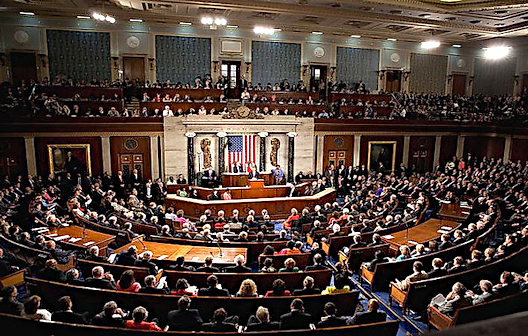Image Credit: Raymond Clark (Flickr)
The DOJ’s Case Against Allowing Medical Marijuana Users from Purchasing a Gun
Is it “dangerous to trust regular marijuana users to exercise sound judgment” with firearms? The Department of Justice responded to a lawsuit asking the court to dismiss a medical marijuana lawsuit on Monday (August 7). The suit was filed by an agriculture official in Florida. The circumstances involved patients using cannabis; it claims that the federal government is unconstitutionally depriving them of their Second Amendment right to purchase and possess firearms. The DOJ asked a federal court to dismiss the lawsuit claiming it seeks to overturn policy involving medical marijuana users and their inability to own firearms.
The suit was filed by Agriculture and Consumer Services Commissioner Nikki Fried (D), who is a candidate in Florida for governor. It made a unique legal argument that a congressional spending rider prevents the use of Justice Department funds to interfere in the implementation of medical marijuana programs.
Presently, in order to buy a gun, citizens are required to fill out a federal form that explicitly asks about the use of (federally) illegal drugs. Applicants that use cannabis, which is legal for medical use in Florida, are not allowed to purchase a gun and could face up to five years in prison if they lie on the application.
This case has national implications and is of interest not just to those that benefit from medical cannabis but also to investors in medical marijuana.
Components of the Case
The suit alleges a federal rule that bars medical marijuana patients from having guns is unconstitutional.
In its motion to dismiss the case or secure a favorable judgment, the U.S. DOJ claimed that the policies being challenged by the lawsuit only apply to people who use illegal drugs, in this case, cannabis. Therefore, Second Amendment rights of law-abiding citizens are not barred.
“These laws merely prevent drug users who commit federal crimes by unlawfully possessing drugs from possessing and receiving firearms, and only for so long as they are actively engaged in that criminal activity,” the DOJ brief to dismiss claimed.
The DOJ referenced Florida’s own medical consent form accepted by Florida marijuana regulators; the DOJ noted that it warns, that marijuana “impairs judgment, cognition and physical coordination, including ‘the ability to think, judge and reason.'” The DOJ added that there was a deeply rooted practice in American law and policy of not allowing dangerous or lawbreaking individuals to possess firearms.
“A long tradition exists of viewing intoxication as a condition that renders firearms possession dangerous, and accordingly restricting the firearms rights of those who become intoxicated,” the brief said.
In the complaint, filed April 20, 2022, the plaintiffs claim the central question in the case is whether the physical and/or psychological effects of medical marijuana render users “sufficiently dangerous or violent” so that possession or use of a firearm would cause concern.
They further referenced a study that demonstrated that medical marijuana has no such effect. The plaintiffs referenced the 2013, Office of National Drug Control Policy study that concluded there was “little support for a contemporaneous, causal relationship between the use of marijuana ‘and either violent or property crime.'”
In its Monday brief, the DOJ countered that “marijuana users with firearms pose a danger comparable to, if not greater than, other groups that have historically been disarmed,” in part because cannabis remains federally illegal.
The government argued further that Nicole Fried, the state Department of Agriculture and Consumer Services commissioner who brought the lawsuit, had no standing to bring the action since she did not allege her right to possess firearms had been infringed.
The DOJ is seeking the dismissal of all claims.
The case is Fried et al. v. Garland et al., case number 4:22-cv-00164, in the U.S. District Court for the Northern District of Florida.
Take Away
It is presumed by many that marijuana for medical use and study will at some point be
dropped as a schedule 1 drug. Despite a number of bills in the house and the Senate that, if passed and signed into law, would accomplish reclassification, to date, marijuana is still illegal on a federal level.
The status is complicated by the fact that 37 of the 50 states allow medical use for qualified individuals. The case filed by Florida’s Agricultural Secretary Fried attempts to still uphold second amendment rights to those approved for and using medical marijuana in Florida. The U.S. Department of Justice is opposed.
There is no indication whether a change in federal legal status would change, in the DOJ’s mind, the dangers of allowing firearm ownership to these patients.
Managing Editor, Channelchek
Suggested Content
 Senate Marijuana Bill Expected Before Summer Break
|
 Lawmakers and Insider Trading Laws
|
 Cannabis Vape Distribution Limited Under New Law
|
 Evaluating Opportunity With the iPhone New Marijuana Policy
|
Sources
https://unicourt.com/case/pc-db5-fried-et-al-v-garland-et-al-1182072
https://www.dea.gov/sites/default/files/2020-06/Marijuana-Cannabis-2020_0.pdf
Stay up to date. Follow us:

|
